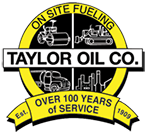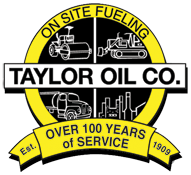Bio Fuels and Onsite Fueling: In recent years, the construction industry in the Northeast has seen a significant shift towards sustainability and efficiency. One of the major contributors to this change is the increasing use of biofuels and onsite construction fueling. These innovations are not only helping to reduce the environmental impact of construction projects but also enhancing operational efficiency. Let’s explore how biofuels and onsite construction fueling are transforming the construction landscape in the Northeast.
The Role of Biofuels in Construction
What are Biofuels?
Biofuels are renewable energy sources made from organic materials, such as plant oils, animal fats, and recycled cooking grease. Unlike traditional fossil fuels, biofuels are biodegradable and produce fewer greenhouse gas emissions when burned. The two most common types of biofuels used in the construction industry are biodiesel and ethanol.
Benefits of Using Biofuels
- Environmental Impact: Biofuels significantly reduce the carbon footprint of construction activities. By replacing conventional diesel with biodiesel, construction companies can cut down on CO2 emissions and other harmful pollutants.
- Renewable and Sustainable: Biofuels are made from renewable resources, making them a more sustainable option compared to finite fossil fuels.
- Engine Performance: Biodiesel has excellent lubricating properties, which can improve the longevity and performance of construction equipment engines.
- Energy Security: By utilizing locally produced biofuels, the Northeast can reduce its dependence on imported oil, enhancing regional energy security.
Adoption in the Northeast
The Northeast, known for its stringent environmental regulations and commitment to sustainability, has been at the forefront of adopting biofuels in construction. States like New York, Massachusetts, and Connecticut have implemented policies that encourage the use of biofuels in public construction projects. Additionally, several private construction firms have voluntarily switched to biofuels to align with their sustainability goals.
Onsite Construction Fueling: Enhancing Efficiency
What is Onsite Construction Fueling?
Onsite construction fueling refers to the practice of delivering fuel directly to construction sites, where it is used to refuel equipment and machinery. This approach eliminates the need for construction vehicles to travel to offsite fueling stations, saving time and increasing productivity.
Advantages of Onsite Fueling
- Time Savings: By fueling equipment onsite, construction companies can minimize downtime associated with refueling trips, keeping projects on schedule.
- Cost Efficiency: Onsite fueling reduces the fuel consumption and wear and tear on vehicles that would otherwise need to travel to and from fueling stations.
- Improved Safety: Onsite fueling reduces the risks associated with transporting fuel, such as spills and accidents on the road.
- Convenience: Having a reliable fuel supply directly at the construction site ensures that equipment can operate continuously, avoiding delays.
Implementation in the Northeast
The Northeast’s construction industry has rapidly embraced onsite fueling services to boost efficiency and productivity. With the region’s often harsh weather conditions, having a dependable onsite fueling solution can be crucial for keeping projects on track. Companies offering onsite fueling services have equipped their fleets with advanced fuel delivery systems, ensuring timely and accurate fuel dispensing.
Combining Biofuels and Onsite Fueling: A Winning Strategy
The integration of biofuels with onsite construction fueling presents a powerful strategy for construction companies in the Northeast. By combining the environmental benefits of biofuels with the operational efficiencies of onsite fueling, construction projects can achieve significant improvements in sustainability and productivity.
Case Studies and Success Stories
Several construction firms in the Northeast have successfully implemented this combined approach. For instance, a major construction project in Boston used biodiesel for all its onsite fueling needs, resulting in a 30% reduction in greenhouse gas emissions and a 20% improvement in project timelines. Similarly, a New York-based construction company reported substantial cost savings and enhanced equipment performance after switching to biodiesel and onsite fueling.
The Future of Biofuels and Onsite Fueling in Construction
As the construction industry continues to evolve, the use of biofuels and onsite fueling is expected to grow. Advances in biofuel technology and more stringent environmental regulations will likely drive further adoption. Additionally, the ongoing development of smart fueling systems and real-time monitoring technologies will enhance the efficiency and reliability of onsite fueling services.
In closing, biofuels and onsite construction fueling are revolutionizing the construction industry in the Northeast. By embracing these innovations, construction companies can reduce their environmental impact, improve operational efficiency, and contribute to a more sustainable future. As these practices become more widespread, the Northeast is poised to lead the way in green construction, setting an example for other regions to follow. Contact Taylor Oil Company for information on bio fuels.


